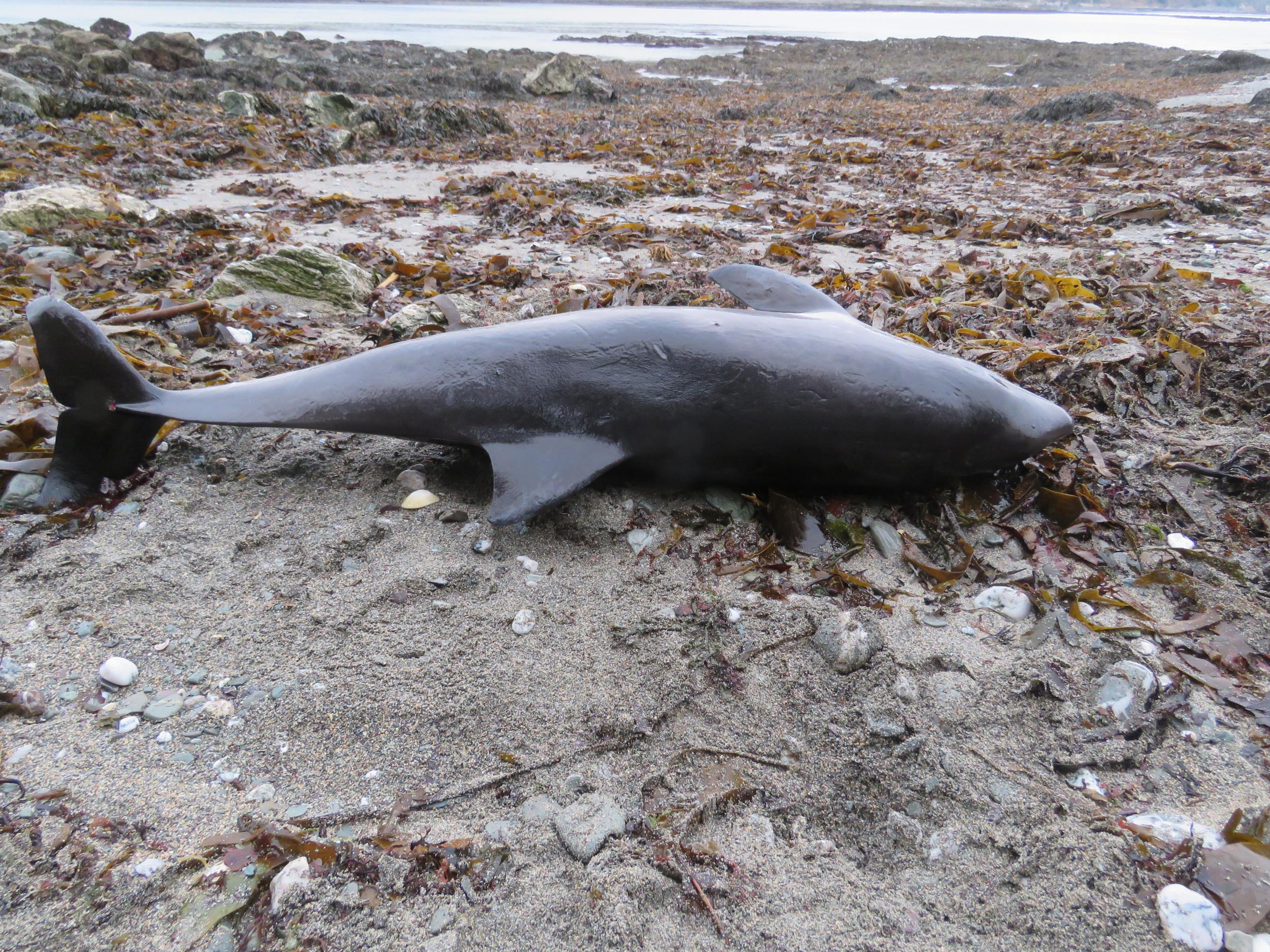Dolphins are mysteriously washing up on Cornish beaches in greater numbers
Twenty-five dolphin strandings recorded on Cornish shorelines since start of January, compared to just four in same period last year

Your support helps us to tell the story
From reproductive rights to climate change to Big Tech, The Independent is on the ground when the story is developing. Whether it's investigating the financials of Elon Musk's pro-Trump PAC or producing our latest documentary, 'The A Word', which shines a light on the American women fighting for reproductive rights, we know how important it is to parse out the facts from the messaging.
At such a critical moment in US history, we need reporters on the ground. Your donation allows us to keep sending journalists to speak to both sides of the story.
The Independent is trusted by Americans across the entire political spectrum. And unlike many other quality news outlets, we choose not to lock Americans out of our reporting and analysis with paywalls. We believe quality journalism should be available to everyone, paid for by those who can afford it.
Your support makes all the difference.Marine experts are investigating after the number of dolphins being washed up on the Cornish coast increased six-fold in a year.
In the two-week period from the start of January, 25 strandings were recorded by volunteers from the Cornwall Wildlife Trust, compared with just four in the first two weeks of last year.
According to the Cornwall Wildlife Trust, 61 whales, dolphins and porpoises were found dead around the local coastline in the first three months of 2016, the highest number since 2006.
Ruth Williams, marine conservation manager at the Cornwall Wildlife Trust, said a single cause for the marked had not been established, and that she and a team of marine scientists were in the process of examining and assessing the dolphin corpses in a bid to tackle the issue.
“It is very unusual to have such high numbers. The cause of death isn't black and white unfortunately," Ms Williams told The Independent.
“Some animals have got very obvious evidence externally, others are a more grey area, so you need to rely on postmortems, but unfortunately the Government only pays for a small number — only 20 a year in Cornwall — which is restrictive.
The marine expert said one potential explanation could be that there are more dolphins closer to the shore — meaning the rate of discovery when they die is higher.

"There has been a high number of dolphin sightings recently. Fish do move around, so the fact that they are close to shore isn’t completely unusual," Ms Williams said.
"It could mean we are seeing the deaths more prominently. When they die further out, only around 10 per cent will wash up on beaches."
In December, researchers found that dolphins in Florida were putting themselves at increasing risk of injury and death by getting too close to humans.
An analysis showed that whether being fed or scavenging human left-overs, the animals were exposed to serious danger when they ventured near boats and fishing lines.
Ms Williams said pollution was also likely to be playing a significant role in the rise in dolphin discoveries, as well as attacks by the bottle-nosed species against smaller dolphins.
“Pollution is a major issue, particularly the effects of PCBs, which is a fairly nasty chemical that has got long life in the marine ecosystem and it's not toxic so much to the animals themselves, but it reduces their immunity making them more susceptible to other disease.
“There are also a lot of dolphins that have been quite severely bullied by bottle-nose dolphins. Bottlenoses are known to attack smaller animals. We don't know if it's food-related or a sexual aggression or a mistake identity of infanticide.
“We examine every animal that washes up on the beaches and assess each one individually and look into it in as much detail as we can. We ask anyone who sees anything to report it in so we can get that evidence."
In response to the rise in numbers, Dr Lyndsey Dodds, head of marine policy at the WWF-UK, said: “Porpoises and dolphins are threatened by a range of impacts from pollution, underwater noise from construction and boating, collision with boats and bycatch from fishing.
"We await with interest the scientific analysis which will hopefully explain the alarming increase of these species washing ashore.
"These events underline why we must have proper protection in place and we call on the UK government to urgently bring forward the designation of Special Areas of Conservation for harbour porpoise as required under the EU Habitats Directive and highlighted as a significant gap by the European Commission.
"Implementation and effective management of marine protected areas is vital to the bio-diversity of UK seas and the social and economic benefits they provide.”
Join our commenting forum
Join thought-provoking conversations, follow other Independent readers and see their replies
Comments